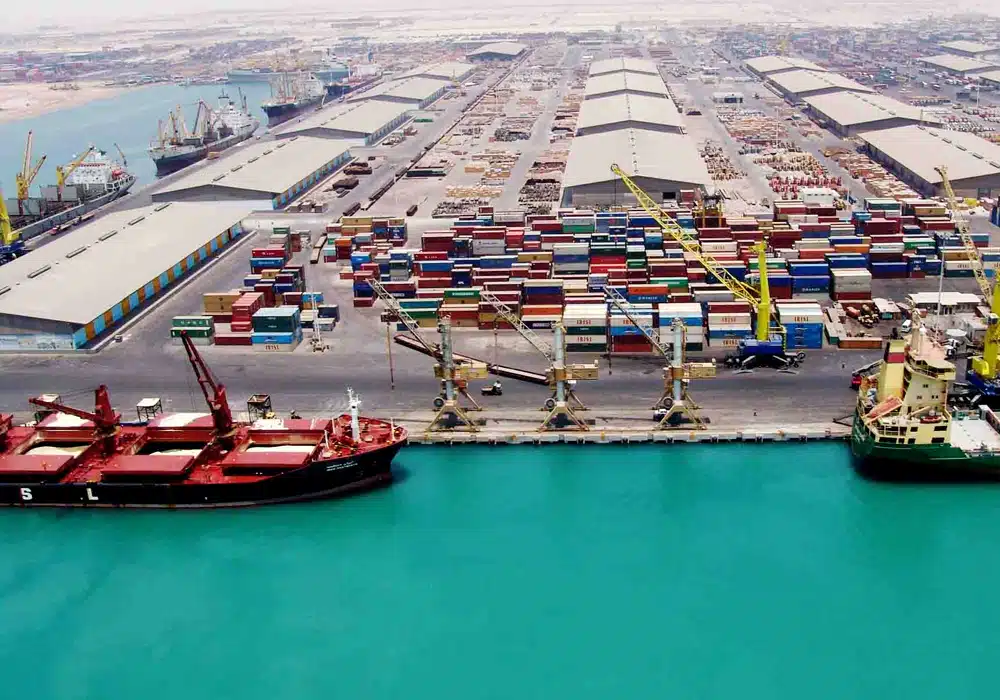Categories
The latest content
-

Customs Clearance & Import Regulations for Bulk Iranian Pinto Beans in EU, Middle East & Africa
..
-

Quality Control & Laboratory Testing Standards for Iranian Pinto Beans
..
-

Logistics & Shipping Solutions for Bulk Iranian Pinto Bean Exports
..
-

Minimum Order Quantity (MOQ) & Bulk Pricing for Iranian Pinto Bean Buyers
..

Tags
The Strategic Importance of Shahid Bahonar Port in Iran’s International Trade and Logistics Operations

Located in the heart of Hormozgan Province, adjacent to the vital Strait of Hormuz, Shahid Bahonar Port is one of Iran’s most strategically important and bustling maritime gateways. This deepwater port, situated in Bandar Abbas, serves as a central hub for both international trade and logistics operations, connecting Iran to major global markets and providing a critical link for landlocked countries in the region.
A Key Maritime Gateway
Shahid Bahonar Port plays a pivotal role in facilitating Iran’s international trade, particularly with countries in the Middle East, South Asia, and Africa. Its proximity to the Strait of Hormuz, one of the world’s most important shipping lanes, gives it direct access to the Persian Gulf, Indian Ocean, and the Arabian Sea, making it a key point for shipping goods between Europe, Asia, and Africa.
It is the primary export hub for many of Iran’s critical goods, including oil products, petrochemicals, minerals, and agricultural products, as well as a significant import terminal for goods entering Iran. With its sophisticated infrastructure and handling capacity, Shahid Bahonar Port ensures efficient operations for the global supply chain, facilitating the swift movement of goods between Iran and the rest of the world.
Multimodal Logistics Hub
One of the port's standout features is its multimodal transport capabilities, which enhance its role in both domestic and international logistics operations. Shahid Bahonar Port has dedicated terminals for various types of cargo:
• Containerized Cargo: The port has extensive container terminals that handle a wide range of imports and exports, making it an essential node for global container shipping lines.
• General Cargo: The port handles a variety of general cargo, including machinery, consumer goods, and industrial supplies. This versatility makes it ideal for businesses involved in manufacturing, trading, and industrial production.
• Bulk Cargo: Shahid Bahonar is equipped to handle dry bulk cargo such as grains, coal, and cement, as well as liquid bulk products, ensuring that critical raw materials can flow seamlessly in and out of Iran.
• Roll-on/Roll-off (Ro-Ro): The port is also highly efficient in handling automobile shipments, facilitating the export and import of cars and heavy equipment.
• Refrigerated and Hazardous Goods: The port has specialized terminals and storage facilities for refrigerated goods (e.g., perishables, seafood) and hazardous materials, making it a key logistical hub for a diverse range of products.
Proximity to Key Industrial Zones
Shahid Bahonar Port's location is also beneficial due to its proximity to key industrial zones in the region. The Shahid Rajaee Port Complex, the largest container port in Iran, lies just a short distance away, further expanding the logistical capabilities of the area. Together with other nearby facilities, including free trade zones and special economic zones, Shahid Bahonar Port plays a central role in supporting the manufacturing and export sectors in Iran.
These zones benefit from tax exemptions, duty-free imports, and other incentives, encouraging international businesses to utilize the port for manufacturing, warehousing, and distribution, and enhancing its role in foreign direct investment (FDI) in Iran.
Year-Round Operations and Strategic Infrastructure
Unlike many other regional ports, Shahid Bahonar Port operates year-round, thanks to its deep-water capacity, which allows it to accommodate large vessels regardless of weather conditions. This ensures uninterrupted maritime trade, even during rough seas or adverse weather events, which is vital for businesses that rely on timely deliveries and supply chain reliability.
In addition, the port’s well-established and modern infrastructure includes advanced cargo handling equipment, state-of-the-art storage facilities, and a customs clearance system that ensures smooth and efficient operations for both imports and exports. With continuous investments in upgrading its infrastructure, the port remains at the forefront of logistical excellence in the region.
Connectivity and Transit Hub
Shahid Bahonar Port is more than just an export/import point; it acts as a vital transit hub for goods moving between Iran and landlocked countries in Central Asia, as well as to neighboring countries in the Middle East and East Africa. Its strong road, rail, and air transportation connections ensure that goods can be distributed quickly and efficiently across Iran and to various neighboring regions.
Its access to Iran’s national rail network and transport corridors such as the Persian Corridor makes it a critical element in the China-Iran trade route, as well as part of the Belt and Road Initiative (BRI), which seeks to strengthen trade relations and infrastructure across Asia, Europe, and Africa.
Economic and Strategic Impact
Shahid Bahonar Port’s role in Iran's economy is immense. As one of the busiest ports in the region, it supports a variety of sectors, from manufacturing and petrochemicals to agriculture and automotive exports. The port generates significant revenue, creates thousands of jobs, and drives economic growth in the region. Moreover, as Iran seeks to expand its global trade footprint, Shahid Bahonar’s strategic location, modern infrastructure, and multimodal capabilities will continue to be crucial in positioning Iran as a key player in international trade and logistics.
Conclusion:
As a critical infrastructure asset for Iran’s economic development, Shahid Bahonar Port plays an irreplaceable role in the country’s international trade and logistics operations. With its strategic location, advanced capabilities, and continued investments, the port is poised to enhance Iran’s trade relations with regional and global partners. Whether for exporting raw materials, importing goods, or serving as a key transit hub for landlocked nations, Shahid Bahonar Port remains one of the most important logistical nodes in the Middle East.
By capitalizing on its location and facilities, Shahid Bahonar Port continues to be a cornerstone of Iran’s economic future, driving trade, investment, and opportunities for growth in an increasingly interconnected world.



